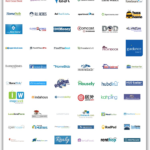You may have heard about the rising interest in real estate as an investment choice in recent years, but are unsure of how to get started. Here, you’ll find the simple steps to starting a real estate business so that you can begin planning your first real estate investment. Whether you plan to flip homes or lease property to tenants, these steps will help get you started on your own path to success in the world of real estate investing.
Get your license
The first step in starting your own real estate business is to get your license. Some states require full-time agents to pass a rigorous exam, while others only require part-time agents (known as REALTORS®) to be trained by more experienced brokers and/or real estate companies.
Either way, you’ll need to take some time getting your real estate education down—it won’t just come overnight. Make sure that you know what steps are required for licensure and before signing up for classes; make sure you can attend class regularly; and make sure it’s something that truly interests you! It’s hard work, but it can also be extremely rewarding.
Define your target market
In any business, defining your target market is important. After all, you don’t want to waste time and money building something that only appeals to 30-year-old women who live in New York City when you actually intend on serving 45-year-old men with children who live in Cincinnati.
When it comes to real estate investing, many people find themselves hesitant about diving into their first investment because they aren’t sure where or how to begin. First things first: Define your target market by determining if you want to be a retail investor or an end user looking for rental properties.
Keep tabs on developments in your area: Governmental decisions affect property values, which also influence your ability as an investor or buyer.
Hire an agent who specializes in your market
There are many people who claim they can help you with all your real estate needs but just like any other business, it’s important that you hire someone who specializes in your local market. Agents will often claim that their services are all-inclusive and come at an affordable price and for some people, these claims turn out to be true.
But keep in mind that just because something is priced affordably doesn’t mean it’s necessarily worth what you’re paying. It may be possible to hire an agent on retainer who works exclusively with you as your real estate agent; otherwise, find someone who has experience handling residential and commercial properties alike.
Learn and apply the right technology
There are lots of great marketing and sales tools that you can use to make your real estate business run more smoothly, save you time, and help you close more deals. From websites and CRMs (customer relationship management systems) to apps for your phone.
all of these tools have something valuable to offer but only if you know how to use them. Here’s a quick rundown of six essential tools every real estate professional should know:
- Website
- Mobile app
- Online lead generation
- Social media
- Email marketing
- Sales software
Understand where you stand financially
Before you invest time and money into a new business, make sure you have your finances in order. Running a real estate business will be more successful if you’re not overextended or relying on personal credit.
Sit down with your current financial statement and go over every line, so that you know exactly where all of your money is going every month. Once you have your cash flow figured out, go back through each expense category and look for areas where spending could be reduced saving even $100 or $200 per month can make it easier to launch a new business on solid footing. (Learn how to save for retirement with our free guide.)
Don’t over extend yourself on credit cards and loans
If you’re serious about starting your own business, don’t overextend yourself with debt. If you need help, talk to a lender and work with them on what loan program is best for your type of business.
Find financing that will give you plenty of room to operate as well as enough time to get your business off of its feet before it needs regular cash flow—and then make sure you follow through.
A great way to do that is by using your start-up money only for business costs and keeping personal credit cards (and their high interest rates) far away from your small business activities. If there’s no budget for it, don’t buy it!
How to Make Money with Real Estate Without Owning Property ?
Choose a location with demand, but low competition
In real estate, location is everything. That said, there are two factors of location: demand and competition. You’ll want to look for markets that have high demand but low competition. The ability to compete often comes down to being able to meet people’s needs at prices they’re willing to pay.
If you want an advantage when starting your real estate business, be sure your first decision as an entrepreneur is to go into a place where you can make that happen. One way to get ahead of your competition is by focusing on areas of growth in cities that are growing quickly.
Do not buy homes that need major repairs or renovations .
If you’re just starting out, then it makes sense that you’d want to stretch your capital by buying older homes and making renovations. While it’s tempting, I advise against it. That’s because you could waste years of your life trying (and likely failing) to bring these properties up to snuff. Plus, you might end up losing money during all those renovations. The bottom line:
f you want financial success—and fast—start small and work your way up by acquiring good, solid properties in nice areas right away. To learn more about how I started myself and how my business grew so quickly, check out my book on Amazon! Just click here!
A do-it-yourselfer should have basic carpentry skills.: Let me start off by saying there are exceptions to every rule. But as a general rule, if you’re going to invest in real estate, you need some basic carpentry skills.
Why? Because DIY repairs can be very expensive if they go wrong. And without knowing what you’re doing, they often do go wrong! Here’s why: When most people encounter a problem with their home—be it a leaking roof or broken air conditioner—they think carpenter.
They call one or two contractors who either don’t show up or charge them far too much for doing simple tasks like caulking around windows or repairing rotting wood. So what happens next? Well, they make things worse!










